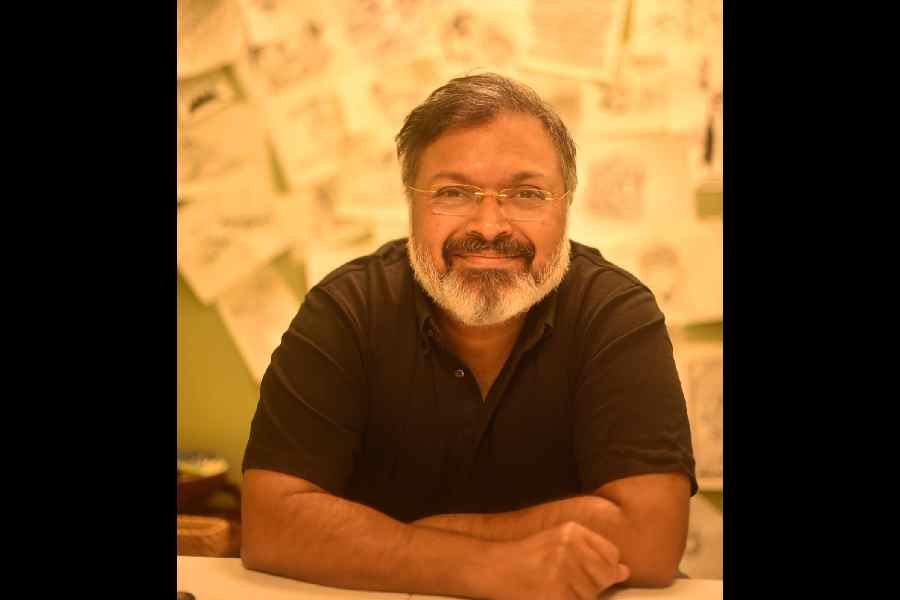Devdutt Pattanaik, who is known for using both the written and oral mediums to tell stories from mythology, making it relevant and relatable in modern times, is back with another podcast, Suno Ramayana Aur Samjho Ramayana. The mythologist, author and illustrator is not new to the medium and has released a number of audiobooks in the past, including Ravana 360, Krishna 360, Veda 360, Suno Mahabharat and Shiv Purana. He brings yet another interesting facet of Ram in this new podcast. Pattanaik who not only narrates the stories but also analyses them and connects with his listeners on an emotional level talks about the latest podcast, how he has evolved as a storyteller and more with t2.
This isn’t your first audio programme. Is it in any way different from the others you have hosted in the past?
Every telling is different from previous tellings. So, I can keep telling you the Ramayana. If I tell you the Ramayana every day, I will tell you something different. It is a deep subject and can be told in so many different ways. The narration depends on the audience. It depends on the themes we pick. It depends on the characters, the plot lines or the analytical template. So it is a never-ending journey.
I work very closely with the Audible team on defining the audience and the approach to the subject I speak on. Audible has given me a lot of freedom.
What is it about the oral medium that attracts you?
The oral medium has a far direct, emotional and sensory connect compared to the written medium, which is far more intellectual.
Ramayana is a big epic. Which stories does the show intend to present this time?
Ramayana is a big epic. But it is a fairly linear narrative about the life of Ram, from birth to death. While we’re familiar with the birth of Ram, not many people are familiar with the death of Ram and his disappearance. Rishi Valmiki has very clearly divided it into seven segments, and I just go along the path that he has shown.
How do you think you have evolved as a storyteller?
I think I use storytelling to help people resolve the emotional issues that they’re confronted with on a day-to-day level. Earlier, I used to just tell the stories. Now I sort of connect them to an emotional issue that they deal with. I think that has helped me improve as a storyteller.
Do you think the listenership of audio format has improved over the years?
Yes, as people go for long walks and drives, as they travel, I think they find podcasting a very good way of listening to various topics. Not everybody likes to listen to music, some people like intellectual stimulation. That’s what podcasts such as this offer. Audible also give me insights into the market, so that we can present something that uplifts the audience. It’s a collaborative effort in many ways. The platform allows me to access a whole new way of approaching ancient Indian ideas.
What are you currently working on?
I work on multiple books simultaneously. So I’m currently writing on the Vedas, the Puranas, the Itihasas, something on culture, something on Buddhism, and, of course, something specific on Bakasura.
